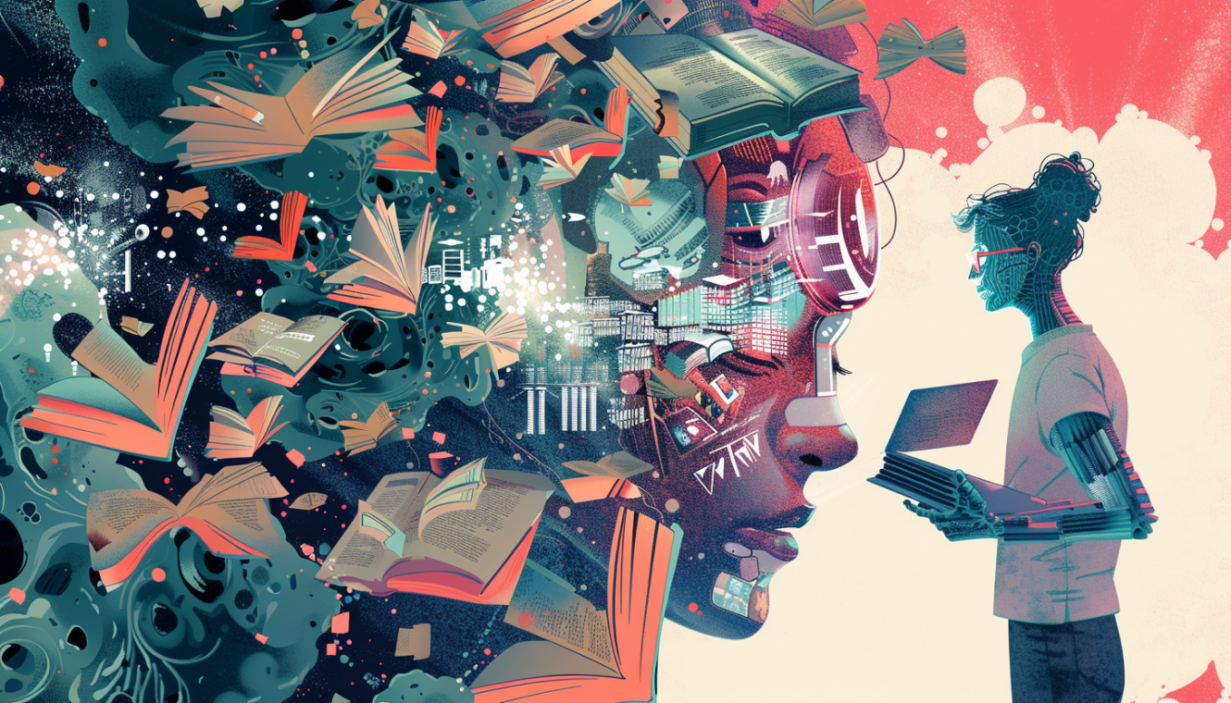AI Could Stifle Collective Creative Writing
By Anthony Burr | TH3FUS3 Managing Editor
July 13, 2024 02:00 AM
Reading time: 3 minutes, 27 seconds
TL;DR Writers are finding AI useful in sparking creativity and making content more engaging. However, a new study warns that overuse of AI may constrain the diversity of collective creative output, making writing less diverse. Individual creativity may increase, but collective novelty could be at risk.

Writers find AI helpful in developing story ideas, spark creativity, and make content more engaging and professional. However, overuse of the technology may increase the risks of constraining the diversity of collective creative output, according to a new study. In other words, AI could make writing less diverse.
Generative AI and Creativity
"Generative AI-enabled stories are more similar to each other than stories by humans alone," the study said. "These results indicate an increase in individual creativity at the risk of losing collective novelty.
"Our results suggest that despite the enhancement effect that generative AI had on individual creativity, there may be a cautionary note if generative AI were adopted more widely for creative tasks," the researchers added.
The study's authors, Anil Dosh and Oliver P. Hauser conducted their experiments in different phases. First, they recruited 293 participants to write short stories, dividing them into three groups: human-only, human with one generative AI idea, and human with five generative AI ideas. The generative AI ideas were provided by OpenAI's GPT-4.
Evaluating Creativity
In the second phase, 600 participants evaluated the stories on creativity, novelty, usefulness, and emotional characteristics. Scores were collected on criteria like "this story is well written," "this story has a surprising twist," and "this story is boring." To avoid bias, the evaluators were unaware of the use of generative AI until after their initial assessments.
AI improved the scores on some metrics. One of generative AI's most significant advantages is its ability to "professionalize" content. The evaluators often described stories produced with AI assistance as better written and more enjoyable.
The study found this improvement was particularly pronounced among less inherently creative writers, leveling the playing field and enabling them to produce work on par with their more creative peers. On the other hand, the study also revealed that naturally creative people benefit only a little from using AI.
Similarity and Ethics
After the test, the researchers looked into how similar the writings were. They used a series of embeddings obtained from OpenAI's API to do so.
These embeddings helped characterize the text's content. Then, they quantified each story's uniqueness by measuring how similar they were to one another using cosine similarity—basically, a metric that evaluates the similarity between two vectors, regardless of their size.
The results showed that stories generated with AI's help are more similar to each other than those created without it. This similarity can be attributed to an "anchoring effect" of the AI-generated ideas, which—while creative—may restrict the variability of writers' own ideas from the start.
"Our results show that having access to generative AI ideas makes a story more similar to the average of other stories within the same condition," the researchers concluded.
The study also explored the ethical implications of using AI in creative processes. Most evaluators found the use of AI in writing stories to be ethical and still a "creative act." However, they penalized writers who used AI, suggesting that transparency and fair credit are essential in AI-assisted creative works.
"Most evaluators indicated that disclosure of the use of AI or the underlying text from AI should be part of publications that used such tools," the study notes.
Future Implications
The issue of ethics in the intersection between AI and art has gained relevance as generative AI tools improve their capacities.
The future of creativity in the age of AI presents a potential self-fulfilling prophecy. Less creative individuals may increasingly use AI to overcome creative blocks, potentially diminishing their ability to exercise their talents and fostering reliance on technology over intellect.
A recent study published by the International Journal of Educational Technology in Higher Education warned that " ChatGPT was likely to develop tendencies for procrastination and memory loss and dampen the students' academic performance."
Given the influence of generative AI today, this trend could easily extend beyond academia, potentially impacting all fields that value creativity.
Understanding and addressing these dynamics would allow artists to harness the full potential of generative AI while safeguarding humanity's irreplaceable essence.



